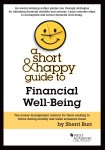by Sherri Burr
 Writers interview. It is one of our most important research techniques. We interview for background information about characters or settings, to obtain quotes to enhance our stories, and for profiles. Use the following five steps to make your interviews successful.
Writers interview. It is one of our most important research techniques. We interview for background information about characters or settings, to obtain quotes to enhance our stories, and for profiles. Use the following five steps to make your interviews successful.
Set up Interviews
How do you contact the person? One option is to write a personalized letter or email. Mention what you admire about his or her work, and why he or she will benefit from talking to you. Although busy, people will take time if presented an opportunity to offer wisdom to benefit others. Mention your credentials, including people you have interviewed before, to give the impression that you are a professional.
If you’re lucky, you’ll run into the person on the street or at a conference. This happens a lot at big events. At the 2008 Book Expo America, I happened upon a room with Magic Johnson and Alec Baldwin. At Taos Talking Pictures, I was interviewing a young actress and noticed that Julia Roberts was standing to my side, and behind the young actress was Susan Sarandon.
With these chance encounters, you have to immediately ask for interviews. This can be intimidating when the person is famous. While I did ask Johnson to speak at a University of New Mexico event and Baldwin for an interview, I was rendered speechless by Roberts and Sarandon. So I wrote a column about standing in the presence of greatness and only knowing their mystery.
If the person says yes, you must follow up immediately. Set a specific time and place. Do not let months go by, as I did, contemplating that Alec Baldwin gave me his cell phone number. If you wait, you’ll find, as I did, that he does not return your messages.
Prepare for Interviews
Obtain background information by Google-ing the person. Print and highlight the most relevant points. Write sample questions, but do not stick to a script. Have a sense of what you most want from the interview. If interviewing writers, ask about their favorite authors and what they learned from their craft. Ask how they deal with rejection. Do they have mentors?
If just venturing into interviews, watch a pro like Oprah. She handled with aplomb, Rielle Hunter, the lover of former presidential candidate John Edwards, and Sarah Duchess of York after she was caught on tape trying to sell access to her ex-spouse, Prince Andrew.
Conduct Interviews
Interviews can take place in person, on the telephone or by email or text. The face-to-face encounter is the best because you can observe body language. With the telephone, you will at least have the tone of voice. With email or text, you just have words. Barbara Walters asked Shirley MacLaine if she liked her brother Warren Beatty. MacLaine answered “yes” while shaking her head “no.” If there is incongruence between body language and the words, the former is the most accurate. With an email interview, that difference would have been missed.
That said, sometimes you take what you can get. I secured only a telephone interview with MacLaine. It lasted seven minutes and I printed every word in my Entertainment Law book.
For face-to-face interviews, arrive early to set up. Bring your writer’s notepad, a pen, and a tape recorder if you desire. Do not rely on the tape recorder as your only recording device. Technology can fail. For a television interview with cellist Yo-Yo Ma, a student intern forgot to turn on the audio, resulting in a useless product with no opportunity for a second chance.
For a print interview, the best recording device is pen and paper. It gives the interviewee some comfort watching you write down her words. But even that can be intimidating. While interviewing The Bachelor’s Bob Guiney (the third bachelor), he clammed up, so I tucked away my writer’s pad. Then he spilled his guts about how ABC was mistreating him. Afterwards, I rushed to my car and wrote it down. I went to bed thinking I had mush but woke up with a complete profile article in my head. If you do employ a recording device, keep it going even after the interview is finished as you sometimes get gems at the end.
Write the Results Immediately
Sometimes dreams resolve problems. When this happens, immediately write the results in your journal or type them on your computer. It’s tempting to think the article will remain in your head for hours or days. Not so. A fully realized piece can just vanish. Thus, don’t wait.
Share the Results with the Subject
Email the results with a deadline that tells the person that this is what you plan to print and they have days (or a week) to make changes. If you do not hear back within the deadline, assume the story is okay to run. Sometimes a subject will want to remove a line or change things. I usually oblige them unless it’s something I want to keep. Character actor Morgan Woodward described the prison guard he played in Cool Hand Luke as “a walking Mephistopheles.” I loved the line and asked to keep it. He relented.
 Sherri Burr is the Regents’ Professor of Law at the University of New Mexico School of Law where she teaches Entertainment Law, Intellectual Property Law, and Art Law. A graduate of Mount Holyoke College, Princeton University, and the Yale Law School, Burr has authored or co-authored twenty books, including A Short and Happy Guide to Financial Well Being (West Academic, 2014).
Sherri Burr is the Regents’ Professor of Law at the University of New Mexico School of Law where she teaches Entertainment Law, Intellectual Property Law, and Art Law. A graduate of Mount Holyoke College, Princeton University, and the Yale Law School, Burr has authored or co-authored twenty books, including A Short and Happy Guide to Financial Well Being (West Academic, 2014).
This article was originally published as “Mastering the Art of Interviewing” in the September 2010 issue of SouthWest Sage and is reprinted here by permission of the author.

